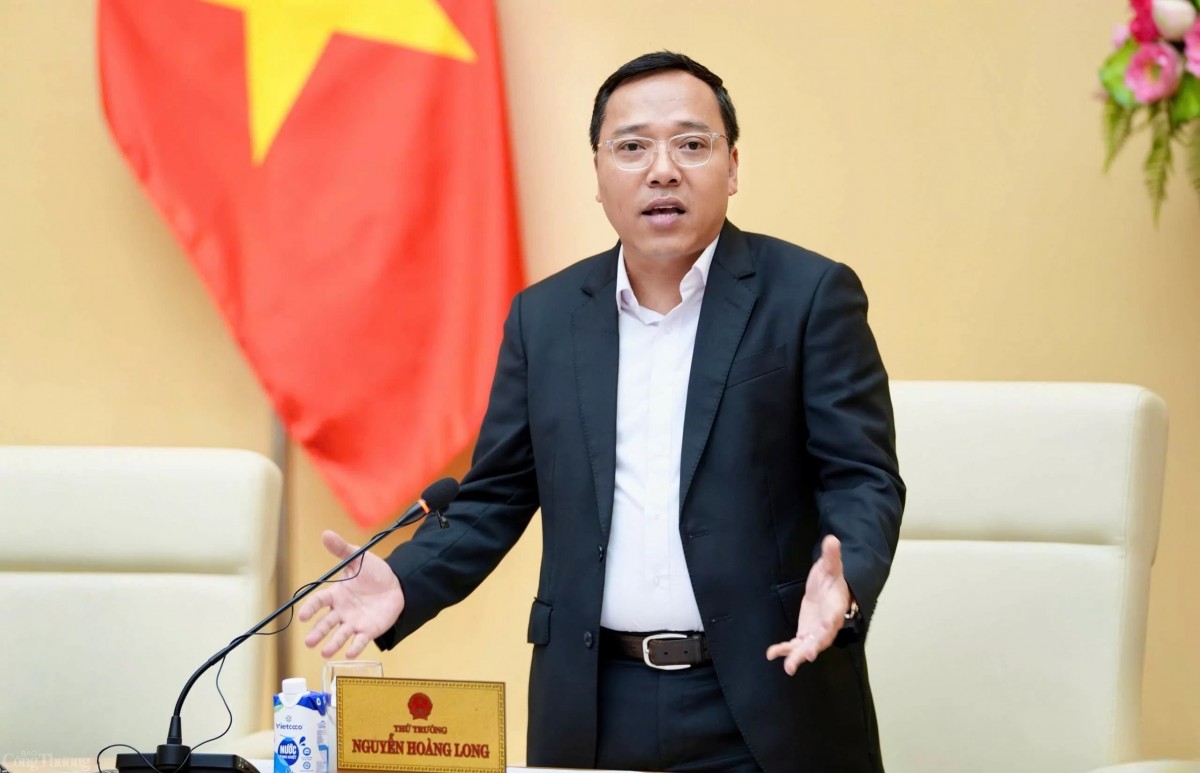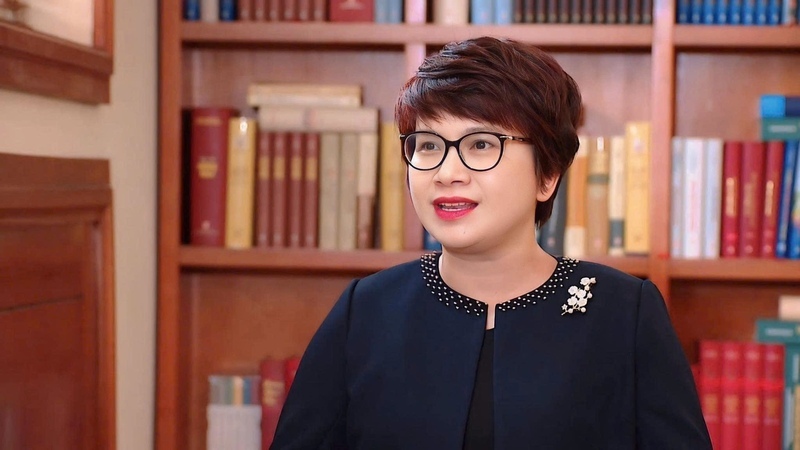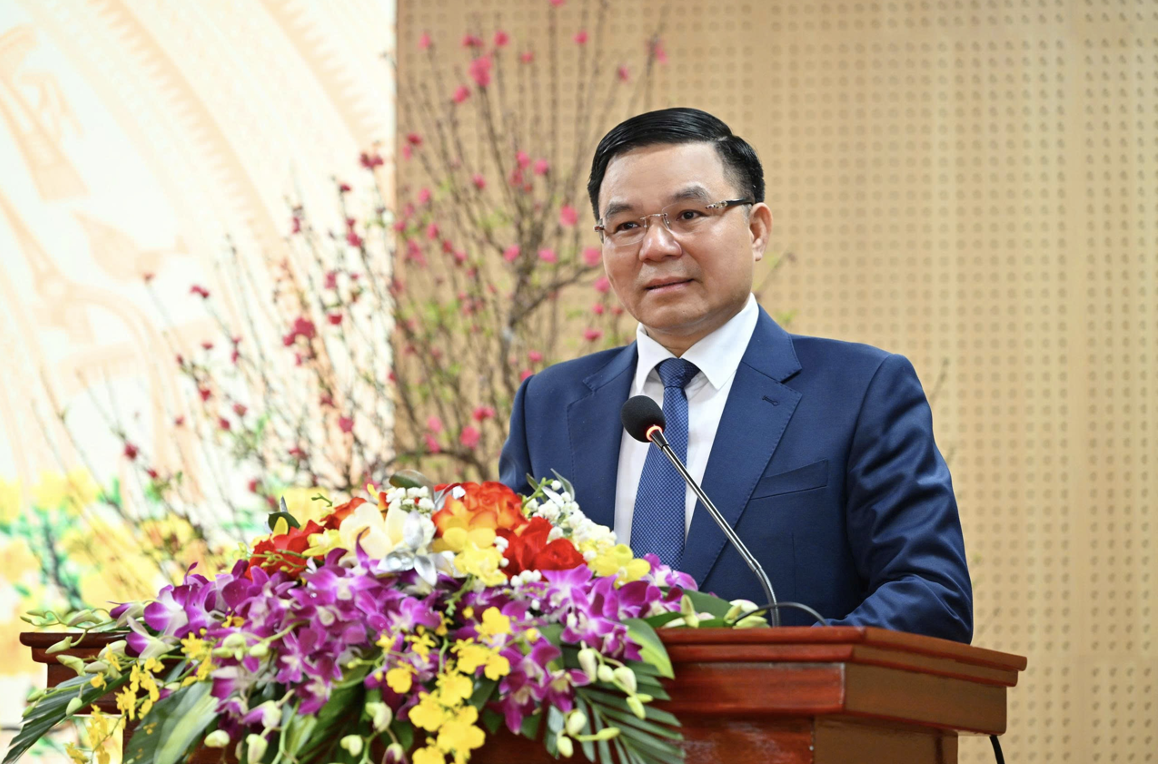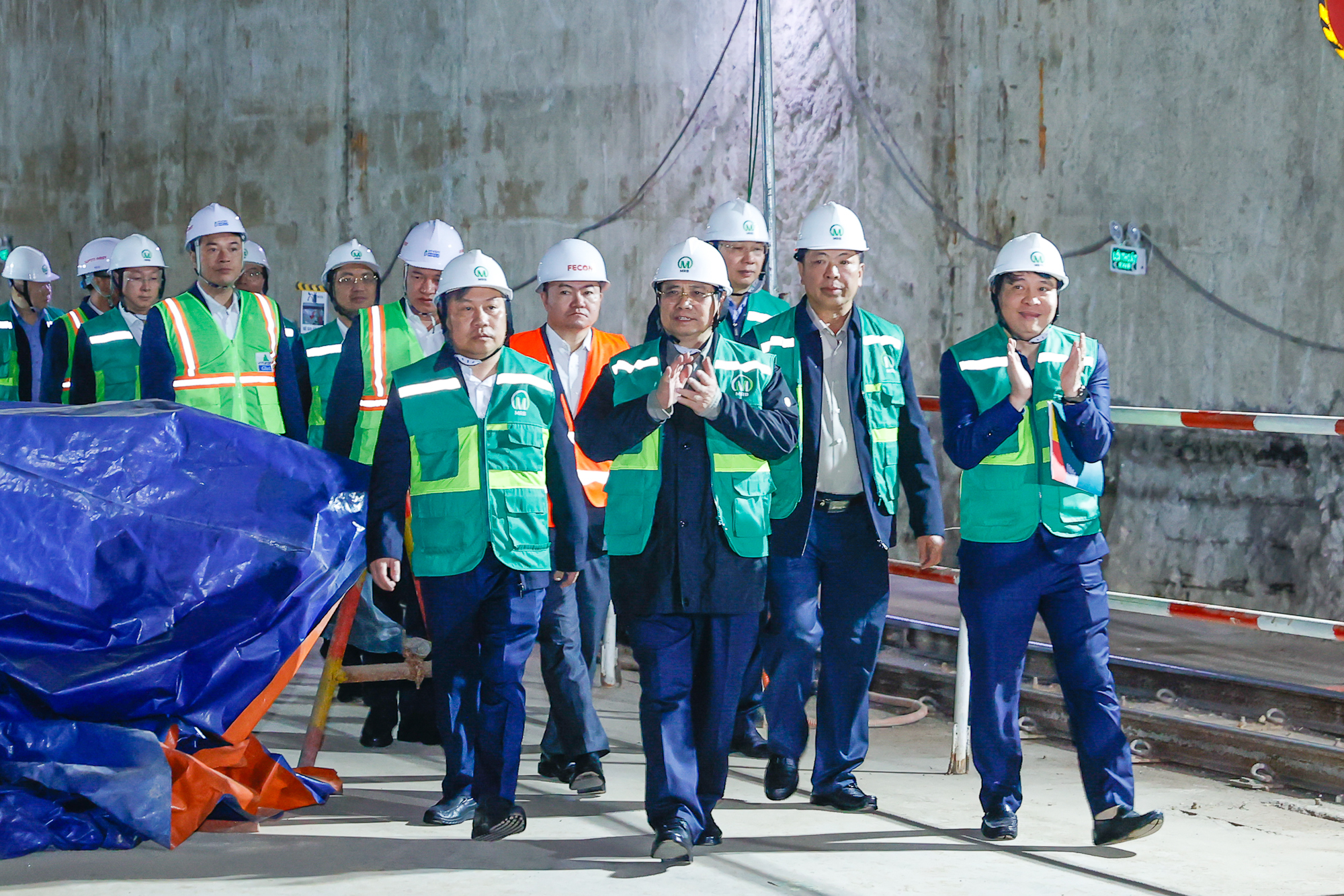
Vietnam’s fruit and vegetable exports to EU triple in four years
19:05 | 23/03/2025 20:40 | 23/02/2026Trade
A new driving force for science and technology
Speaking at the National Conference to implement Resolution 57-NQ/TW of the Politburo on breakthroughs in the development of science, technology, innovation, and national digital transformation on May 19, Deputy Minister of Industry and Trade Nguyen Hoang Long congratulated the science and technology workforce of the industry sector on the occasion of Vietnam Science and Technology Day.
 |
| Deputy Minister of Industry and Trade Nguyen Hoang Long congratulated the science and technology team in the industry and trade sector on Vietnam Science and Technology Day. (Photo: Thanh Tuan) |
“Our Ministry has played a major role in national scientific and technological progress through its state management agencies, research institutes, and universities. This is something we should be proud of,” Deputy Minister Long stated.
In a time of global digital transformation, science, technology, innovation, and digitalization have become central forces driving economic growth and national strength. Recognizing this, the Party and Government have issued key policies, including Politburo Resolution 57-NQ/TW and Government Resolution 71/NQ-CP, both aiming to create breakthroughs in these fields.
These resolutions outline strategic goals and specific tasks to help Vietnam transition into a new era—an era defined by a digital economy and digital society, where innovation, science, technology, and digital transformation are foundational pillars. This transformation presents not only major challenges but also significant opportunities for the Ministry of Industry and Trade to affirm its pioneering role.
“The issuance of Resolution 57 by the Politburo is a fundamental and decisive milestone in helping Vietnam rise to a new era. To achieve our centennial goals, scientific and technological development is imperative,” Deputy Minister Long emphasized, adding that the resolution opens a new chapter for Vietnam’s innovation ecosystem.
While the path to scientific and technological progress has faced many obstacles in the past, Resolution 57 provides the policy mechanisms and legal frameworks needed to unlock progress in the years ahead.
The Deputy Minister also stressed that the Ministry of Industry and Trade is well-positioned to lead this shift, given its extensive network of institutes, training institutions, and a large body of researchers, educators, and students. “No challenge is insurmountable with enough determination and ambition,” he affirmed.
Six strategic tasks for the Ministry of Industry and Trade
To effectively implement the objectives of Resolution 57 and other related directives, Deputy Minister Long outlined six core tasks for the Ministry of Industry and Trade:
Firstly, to improve policy mechanisms and organizational structures.
The Ministry will review and propose amendments to existing legal documents to remove barriers and create an enabling environment for businesses to invest in research and the application of advanced technologies. Particular focus will be given to high-tech industries, green technology, and the circular economy.
Secondly, to develop an innovation ecosystem within the industry and trade sector.
Efforts will be made to establish innovation hubs and clusters that link businesses, research institutes, and universities in key sectors. Special support will be given to startups and the commercialization of creative ideas.
Thirdly, to build a high-quality workforce.
Training programs under the Ministry will be modernized to emphasize digital skills and innovation competencies. A highly qualified cadre of science and technology professionals will be cultivated to meet the demands of Industry 4.0 and international trends.
Fourthly, to accelerate digital transformation across the sector.
From state management to business operations, digital tools and integrated data systems will be adopted to enhance efficiency. The goal is to develop digital industry, digital commerce, and digital governance in areas under the Ministry’s purview.
Fifthly, to strengthen international cooperation.
The Ministry will deepen global integration and actively participate in international innovation networks. Through these partnerships, Vietnam aims to leverage foreign resources, experience, and technologies to bolster its key industries and services.
Sixthly, to reform public administration toward a facilitating, service-oriented approach.
Administrative procedures will be streamlined, and digital governance expanded to promote transparency and enable innovation. A more open and supportive legal environment will be created to encourage startups and creative ventures in the sector.
| “As we stand on the threshold of a new era filled with both immense challenges and opportunities, the Ministry of Industry and Trade must embrace innovation, dare to think and act boldly, and overcome institutional and mindset barriers to create breakthroughs in science, technology, and innovation,” Deputy Minister Long concluded. |

19:05 | 23/03/2025 20:40 | 23/02/2026Trade

19:05 | 23/03/2025 20:38 | 23/02/2026Trade

19:05 | 23/03/2025 20:30 | 23/02/2026News and Events

19:05 | 23/03/2025 20:29 | 23/02/2026News and Events

19:05 | 23/03/2025 20:14 | 22/02/2026News and Events